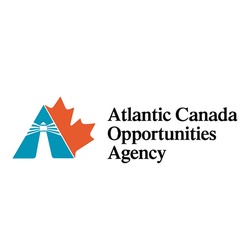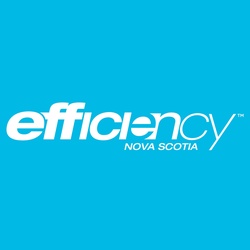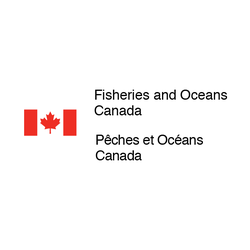
ACOA Industrial and Technological Benefits policy
At a glance
- No Condition
- Unspecified
- Manufacturing
- Professional, scientific and technical services
- Administrative and support, waste management and remediation services
- Educational services
- Public administration
- Nova Scotia
- For-profit business
- All revenue ranges
- All organization sizes
- All groups
Overview
Get support when bidding on major aerospace, marine and land projects with the federal government. Experts can take a look at your value proposition and Key Industrial Capabilities (KICs), which are key for showing how your work is helping to drive innova
Activities funded
The ACOA Industrial and Technological Benefits policy supports projects that enhance the economic impact of defence contracts in Canada, specifically in Atlantic Canada. Eligible activities focus on connecting local capabilities with the needs of major defence contractors and promoting competitiveness in the defence sector.
- Facilitating partnerships between local businesses and major defence contractors.
- Promoting participation of Atlantic Canadian firms in global supply chains.
- Building industrial capabilities and creating jobs in Atlantic Canada.
- Identifying investment opportunities for defence contractors in the region.
- Participating in networking events, trade shows, and conferences to promote regional industry.
Eligibility
Eligibility for participation in the Industrial and Technological Benefits Policy grant is determined by specific criteria related to the size of the contracts and the nature of the procurements.
- The company must be positioned to engage with the Canadian Armed Forces (CAF) and Canadian Coast Guard (CCG) procurements.
- Procurement contract values must exceed $100 million, or be reviewed if valued between $20 million and $100 million.
- The company must demonstrate a Value Proposition that includes economic benefits for Canada, which is evaluated along with technical and cost requirements.
- The company must contribute to the growth and sustainability of Canada’s defence sector, including small and medium-sized firms.
- Emphasis must be placed on Canadian-based innovation, research and development, export potential, and skills development.
Who is eligible?
Eligible bidders for projects under the Industrial and Technological Benefits (ITB) Policy include companies involved in CAF and CCG procurements with contract values over $20 million. The specific evaluation and selection criteria for these projects are not detailed in the context provided. However, generally, bidders must submit a Value Proposition that outlines economic benefits to Canada, which is evaluated alongside technical and cost criteria.Who is not eligible
There are specific types of companies that are not eligible for this grant. To be eligible for the grant, companies must meet certain criteria such as:
- Companies not registered or operating in Canada
- Companies that do not comply with the Industrial and Technological Benefits (ITB) Policy requirements
- Companies with a history of non-compliance with government regulations
- Companies involved in illegal or unethical practices
Eligible expenses
This grant supports projects aimed at boosting economic growth and development through the collaboration of local industries with major defence contractors. Eligible activities focus on enhancing regional capabilities, engaging with industry players, and promoting the Atlantic region's industrial sectors.
- Facilitating engagement between Atlantic Canadian industries and major defence contractors.
- Promoting the local aerospace, defence, and security sectors at trade shows and networking events.
- Matching regional skills and capabilities with the needs of defence contractors.
- Identifying and promoting investment opportunities within the region's industries.
- Providing advice and information to government officials to influence project and policy decisions.
- Connecting contractors with local academic institutions for research and skills development collaborations.
Eligible geographic areas
This grant is available to companies working in collaboration with regional partners in Atlantic Canada. It leverages regional expertise to promote economic growth and industrial capabilities.
- Nova Scotia, Canada
- New Brunswick, Canada
- Prince Edward Island, Canada
- Newfoundland and Labrador, Canada
Selection criteria
The evaluation and selection criteria for projects under the Industrial and Technological Benefits policy in Canada are not explicitly detailed in terms of point score allocation within the provided context.
- Submissions must include a Value Proposition outlining economic benefits to Canada.
- Evaluation is based on how proposals align with ITB Policy objectives, such as supporting long-term sustainability in Canada’s defense sector.
- Evaluation considers the growth potential for prime contractors and suppliers in Canada, leveraging small to medium-sized enterprises.
- Boosts innovation through Canadian research and development initiatives.
- Increases export potential of Canadian-based firms.
- Identifies skills development and training opportunities for Canadians.
How to apply
Contact ACOA Business Information Services
- Reach out to ACOA for initial guidance on the application process.
- Contact their bilingual agents at 1-888-576-4444 for specific inquiries related to your region.
Understand ITB Policy Requirements
- Review the ITB Policy objectives and requirements applicable to your business or project.
- Determine if your proposal aligns with the goals of supporting long-term sustainability, boosting innovation, and increasing export potential.
Engage With ACOA Contacts
- Establish communication with relevant ACOA contacts specialized in your area of interest (Aerospace, Marine, or Land).
- Collaborate with these experts to refine your proposal and ensure all policy requirements are addressed.
- Use provided emails and phone numbers to maintain direct contact.
Prepare a Value Proposition
- Draft an evaluated Value Proposition that outlines the economic benefits of your project to Canada.
- Include details on potential local job creation, industrial capabilities, and alignment with policy objectives.
- Tailor the proposition to appeal to major defence contractors and highlight regional strengths.
Attend Relevant Events
- Participate in networking events, trade shows, and conferences promoted by ACOA to connect with potential partners and contractors.
- Leverage these opportunities to gain insights and support for your application.
Submit the Application
- Compile all necessary documentation including the Value Proposition and any other supporting materials.
- Submit your application to ACOA as directed, ensuring all components are complete and comply with guidelines.
Confirmation and Follow-Up
- Obtain confirmation of receipt from ACOA.
- Maintain ongoing communication with ACOA for updates and additional requirements during the evaluation process.
Additional information
Here are additional relevant details for this grant:
- ACOA plays a pivotal role in supporting and leveraging opportunities created by the ITB Policy in Atlantic Canada by collaborating with local businesses, universities, and governments.
- The ITB Policy aims to fuel the defence sector through investments in research and development, exports, and skills development.
- Bidders on procurement projects need to focus on local capabilities and partnerships to enhance their Value Proposition and score better during evaluations.
- ACOA assists in organizing networking events, trade shows, and conferences to promote awareness and opportunities within the defence and security sector.
- ACOA provides consultancy to align Atlantic Canadian capabilities with defence contractors' needs and assists in understanding the ITB Policy.
Contacts
Frequently Asked Questions about the ACOA Industrial and Technological Benefits policy Program
What is the ACOA Industrial and Technological Benefits policy?
Who is eligible for the ACOA Industrial and Technological Benefits policy program?
What expenses are eligible under ACOA Industrial and Technological Benefits policy?
Who can I contact for more information about the ACOA Industrial and Technological Benefits policy?
Where is the ACOA Industrial and Technological Benefits policy available?
Is the ACOA Industrial and Technological Benefits policy a grant, loan, or tax credit?
Who are the financial supporters of the ACOA Industrial and Technological Benefits policy?
More programs like this

Regional Economic Growth through Innovation (REGI) — Business Scale-up and Productivity — ACOA
Atlantic Canada Opportunities Agency (ACOA)
Regional Defence Investment Initiative in Atlantic Canada
Atlantic Canada Opportunities Agency (ACOA)
Business Energy Rebates
Efficiency Nova Scotia
START Program
Government of Nova Scotia
Youth Climate Action Fund
Halifax Climate Investment, Innovation and Impact Fund (HCi3)
ACOA Jobs and Growth Fund — For Profit
Atlantic Canada Opportunities Agency (ACOA)
Atlantic Fisheries Fund – Atlantic innovation, infrastructure or science partnerships funding
Fisheries and Oceans Canada (DFO)
Launch Export Atlantic Incubator
Government of Nova Scotia
Invest Nova Scotia — Greenshoots
Government of Nova Scotia